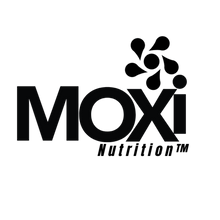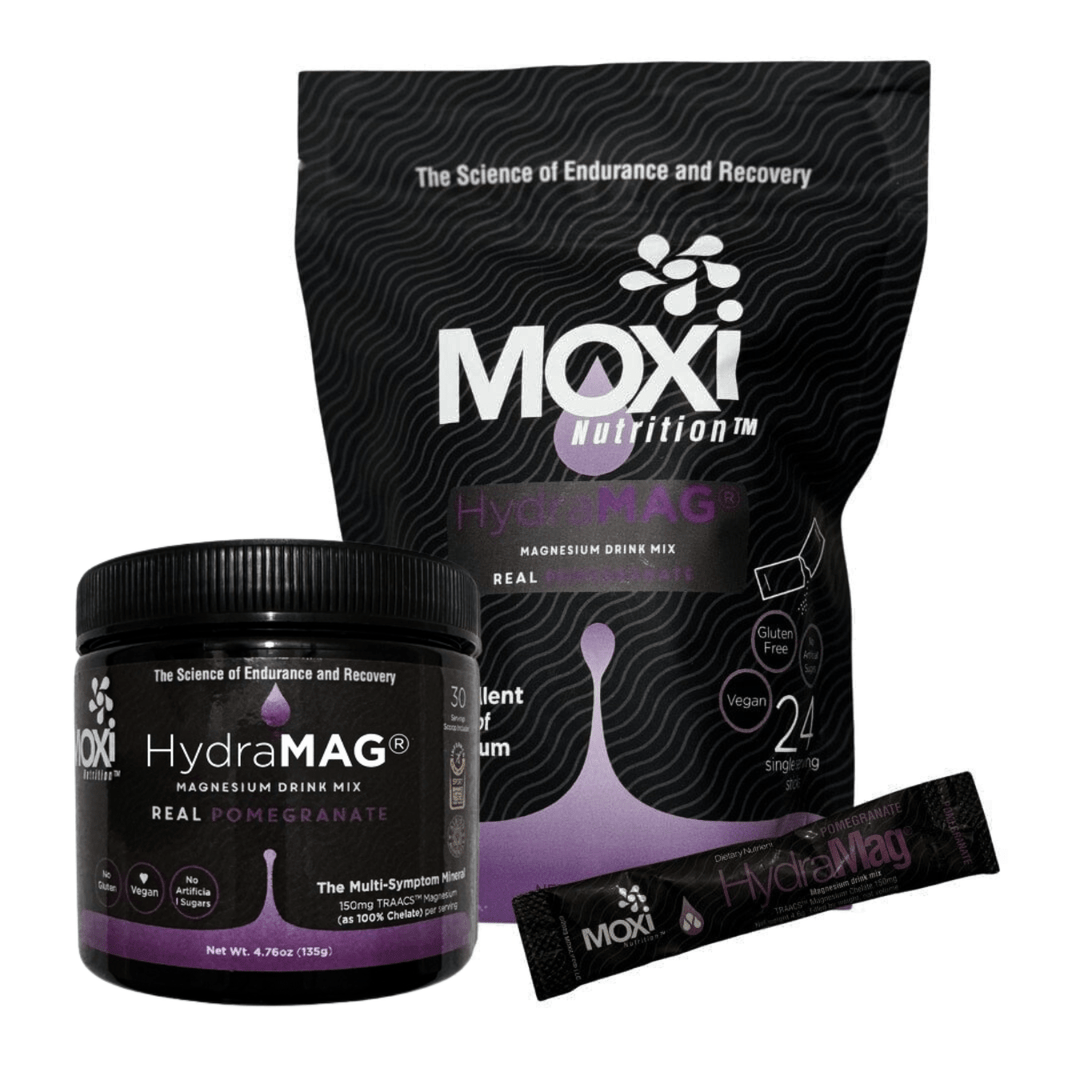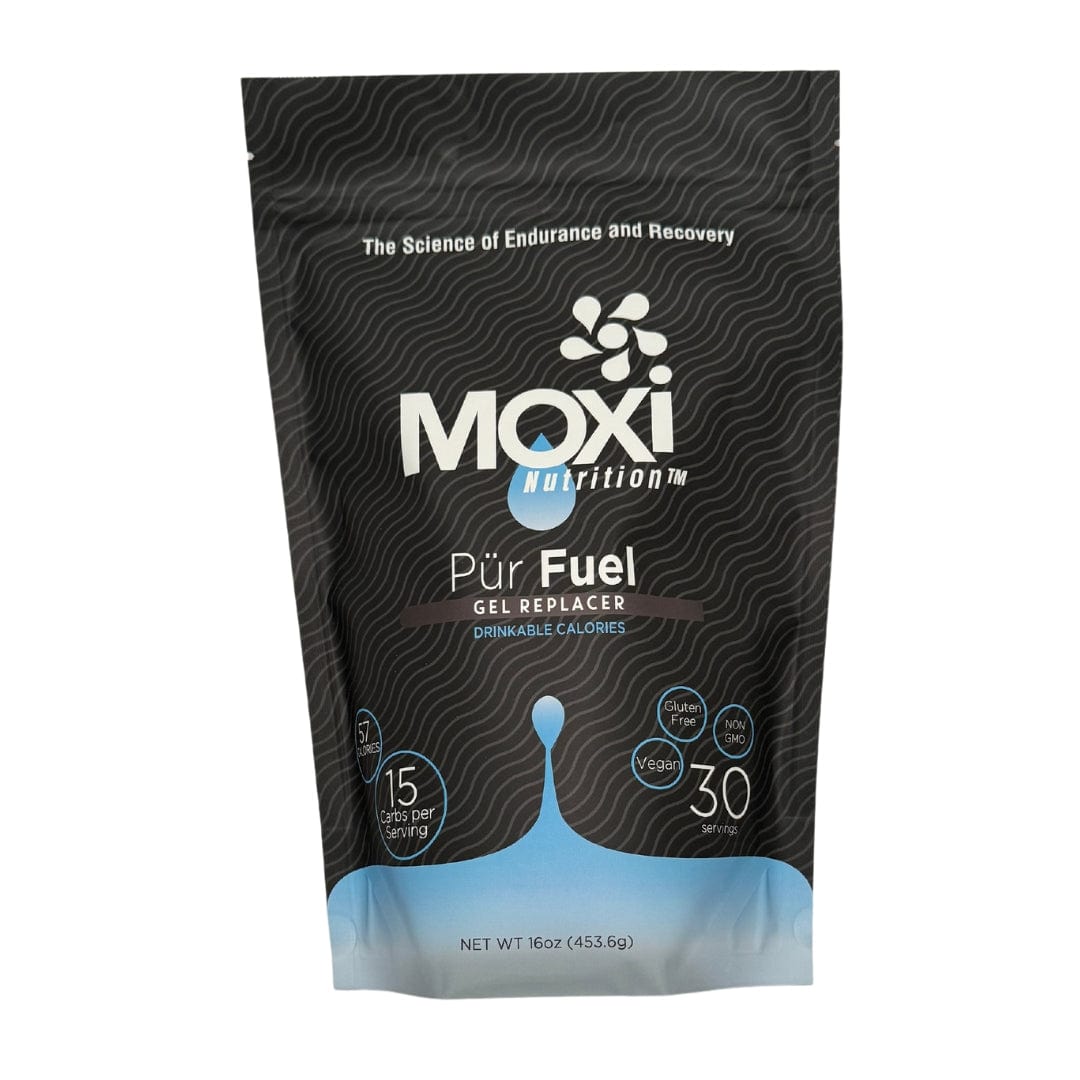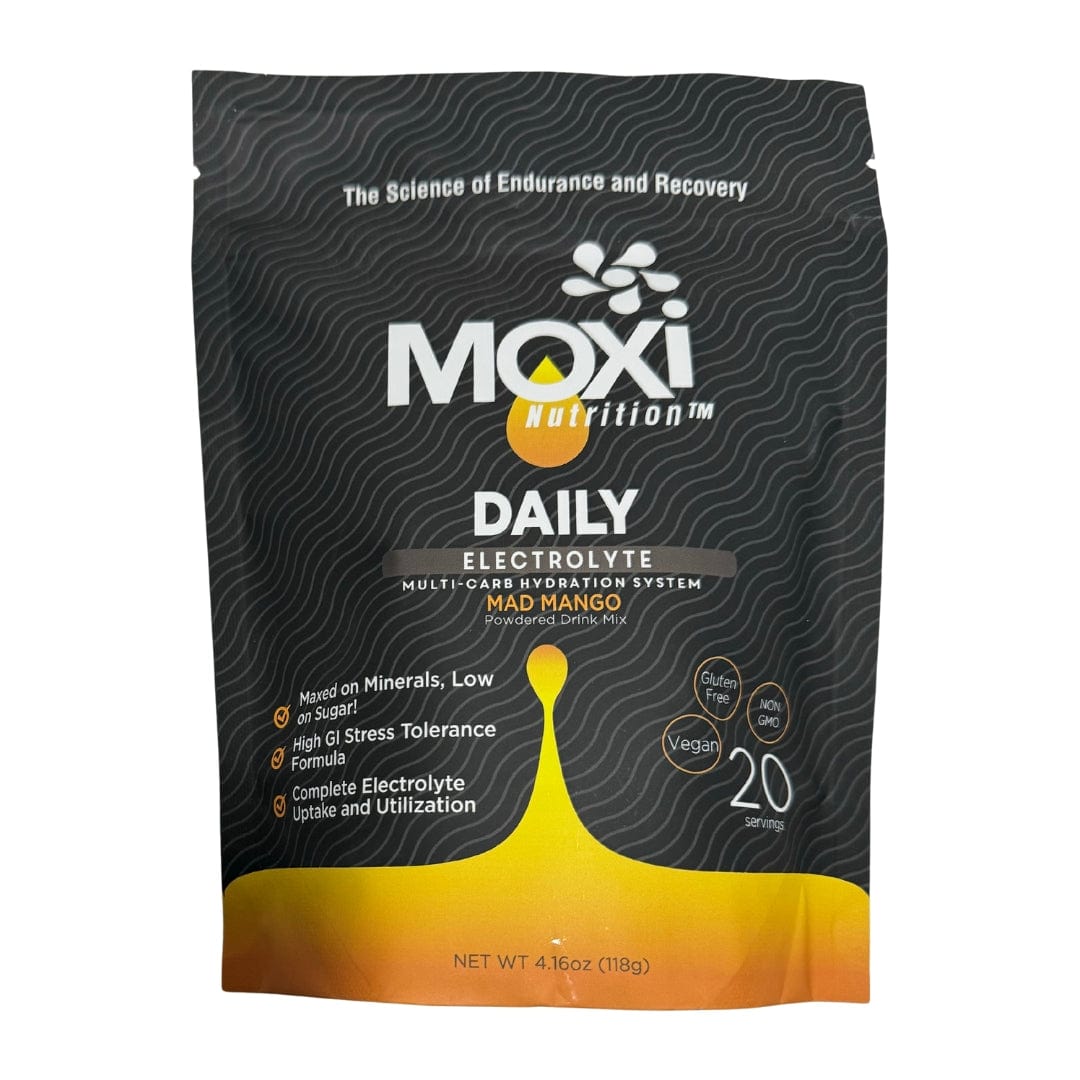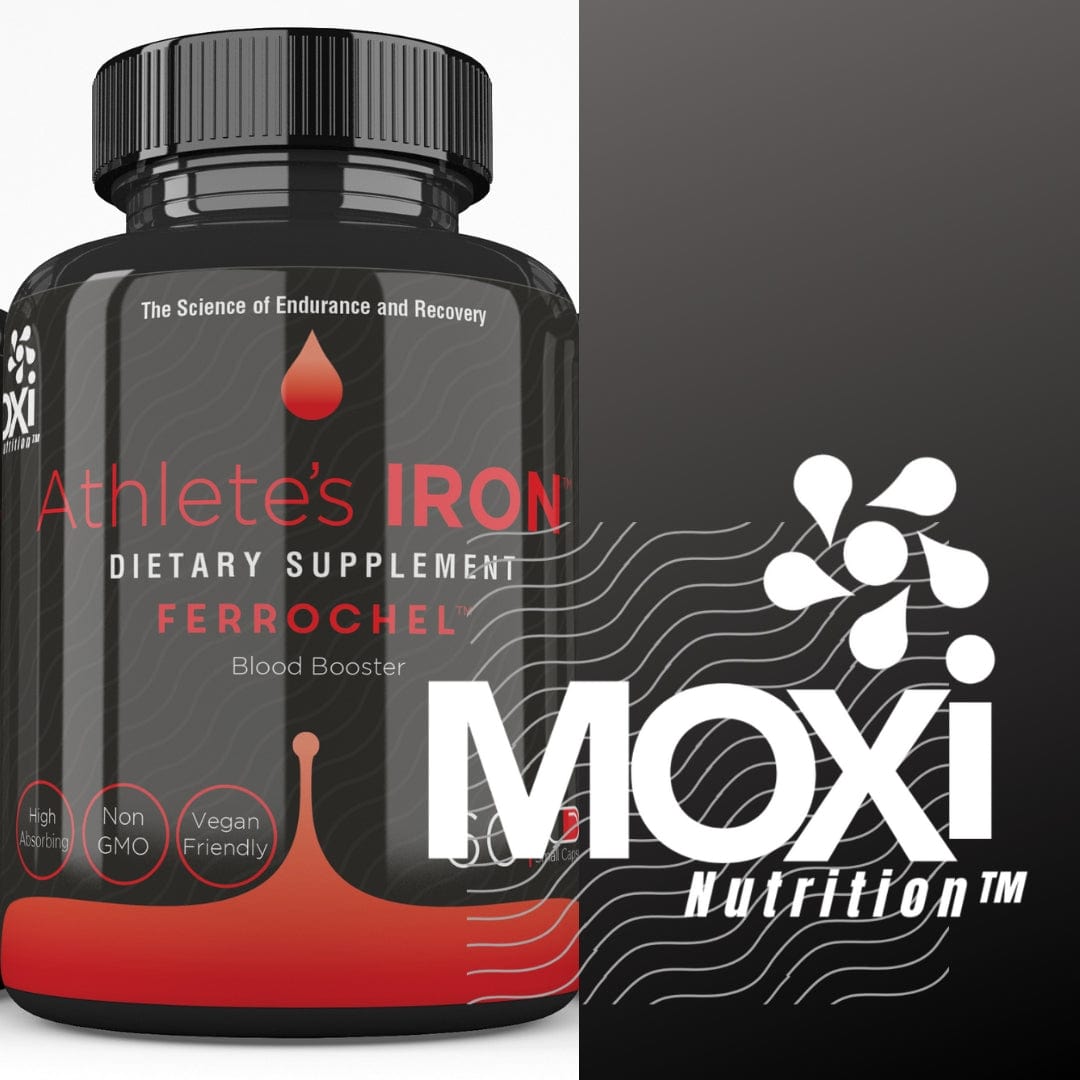Magnesium and Sports Performance: What You Need to Know
Magnesium and Sports Performance: What You Need to Know
Do you struggle with muscle cramps or fatigue during your workouts? Magnesium plays a crucial role in muscle function and energy production, making it essential for anyone involved in sports. In this post, we'll explore how magnesium influences exercise performance, mental clarity, and hydration. By understanding these aspects, you can optimize your intake of this important mineral to improve your athletic performance and recovery. Gain insights into addressing common issues, and discover practical tips for ensuring you're meeting your magnesium needs.
The Role of Magnesium in Muscle Function and Recovery
Magnesium plays a key role in both muscle contraction and relaxation, essential for athletes seeking peak performance. Its presence impacts muscle recovery post-exercise, ensuring effective oxygen delivery during training. Athletes should recognize symptoms of magnesium deficiency, such as cramps or fatigue, and include best dietary sources like nuts and leafy greens. Understanding the recommended daily intake helps optimize muscle function, supporting recovery and enhancing performance.
How Magnesium Supports Muscle Contraction and Relaxation
Magnesium is vital for effective muscle contraction and relaxation, playing a significant role in the physiological processes that occur during physical activity. It helps regulate calcium levels within muscle cells, promoting enhanced contraction and efficient oxygen delivery. This regulation minimizes the risk of cramps or spasms that athletes often experience, especially when under stress from factors like caffeine intake or inadequate iron levels.
Moreover, magnesium supports proper breathing patterns during exercise, ensuring that muscles receive the oxygen needed for optimal performance. Including magnesium-rich foods in the diet, such as leafy greens and nuts, can be beneficial. For those who struggle to meet their needs through diet alone, magnesium supplements in capsule form may provide a convenient option to enhance muscle function and expedite recovery during intense training sessions.
The Impact of Magnesium on Muscle Recovery After Exercise
Magnesium plays a significant role in muscle recovery by influencing hormonal balance and minimizing the effects of physical stress. Research indicates that magnesium citrate, a highly absorbable form of magnesium, can help reduce lactic acid buildup, which often leads to muscle soreness after intense workouts. By supporting efficient recovery processes, magnesium ensures that athletes can maintain their physical fitness levels and return to their training regimens sooner, enhancing overall performance.
Inadequate magnesium levels can hinder the recovery process, leading to prolonged fatigue and muscle stiffness. An athlete experiencing high levels of stress, whether from rigorous training or competition pressure, may benefit from magnesium supplementation to support muscle repair and hormone regulation. Integrating magnesium-rich foods or appropriate supplements into one’s diet can be an effective strategy for improving recovery times and managing physical exertion during challenging workouts.
Symptoms of Magnesium Deficiency in Athletes
Athletes experiencing magnesium deficiency may notice a range of symptoms that interfere with their performance. A key indicator is muscle cramps, which can occur during anaerobic exercise when oxygen levels are limited. Additionally, magnesium plays a role in regulating serotonin, a neurotransmitter linked to mood and physical relaxation. Low magnesium levels can disrupt this balance, potentially leading to fatigue and a decline in motivation, making it essential for athletes to monitor their intake.
Perspiration during workouts can exacerbate magnesium loss, particularly in hot conditions or during intense exercise. Athletes may also find it challenging to maintain optimal lung function; magnesium supports respiratory muscles, ensuring effective breathing patterns. Alongside B vitamins, which work closely with magnesium for energy production and recovery, maintaining adequate magnesium levels is crucial for athletes aiming to enhance performance and minimize fatigue. Regularly incorporating magnesium-rich foods or supplements can address these deficiencies effectively.
Best Sources of Magnesium for Optimal Muscle Function
Nuts, seeds, whole grains, and leafy greens are excellent sources of magnesium that can enhance muscle performance during endurance training. Foods like almonds and spinach provide high magnesium content, essential for effective muscle contraction and recovery. Incorporating these foods into daily meals can support energy substrate availability and help to mitigate issues related to weight management and performance fatigue.
In addition to dietary sources, magnesium supplements can offer a practical solution for athletes looking to improve their magnesium intake. For those engaged in demanding physical activities or experiencing high sugar consumption, a targeted magnesium approach can aid in maintaining optimal function and recovery. By prioritizing magnesium-rich foods and supplements, athletes can tackle deficiencies effectively and support their training goals more efficiently.
Recommended Daily Intake of Magnesium for Athletes
The recommended daily intake of magnesium for athletes varies based on factors such as age, sex, and activity level. Generally, adult males require about 400-420 mg, while females need approximately 310-320 mg per day. This mineral is vital not only for muscle function but also for mood regulation and motor control, both of which are crucial during training sessions. Ensuring adequate magnesium levels can enhance serum magnesium concentration, facilitating better absorption of nutrients necessary for optimal performance.
To support muscle recovery and overall sports performance, athletes should prioritize magnesium-rich foods in their diet, such as nuts, seeds, and leafy greens. Greater emphasis on these foods can aid in two ways: improving lipid metabolism and enhancing energy levels. Those engaged in high-intensity training or experiencing stress may require magnesium supplementation to meet their needs effectively. Incorporating such strategies can lead to increased recovery efficiency, allowing athletes to train harder and perform better.
Magnesium's Influence on Energy Production
Magnesium plays a crucial role in ATP production, acting as a cofactor for enzymes involved in energy metabolism. It also helps regulate blood sugar levels during exercise, ensuring a steady energy supply. This mineral's influence extends to endurance performance, where adequate hydration and gene expression are key. Strategies to maintain magnesium levels, supported by case studies on supplementation, provide valuable insights for athletes seeking to enhance their performance.
The Role of Magnesium in ATP Production
Magnesium is essential for ATP production, the primary energy currency used in muscle contractions during physical activity. A systematic review published in PLOS ONE highlights how magnesium serves as a cofactor for various enzymes involved in the biochemical pathways of energy metabolism, impacting athletic performance. Athletes often underestimate the importance of maintaining adequate magnesium levels, which can directly influence their energy efficiency and overall efficacy in high-intensity training sessions.
By facilitating the conversion of carbohydrates and fats into usable energy, magnesium plays a pivotal role in sustaining endurance during long workouts. This mineral’s influence on ATP synthesis is critical; insufficient levels can lead to decreased energy availability, resulting in fatigue and hindered performance. For athletes focused on maximizing their training outcomes, addressing magnesium intake through dietary sources or supplements can promote better energy levels and enhance recovery processes following strenuous exercises.
How Magnesium Affects Blood Sugar Levels During Exercise
Magnesium plays a critical role in regulating blood sugar levels during physical activity, which is essential for maintaining energy levels and optimizing performance. Research suggests that adequate magnesium intake may enhance insulin sensitivity, allowing for better glucose uptake in muscles. This effect is particularly beneficial for athletes who rely on quick energy bursts, as it supports smooth transitions in fuel utilization and helps prevent potential injury related to energy deficits.
The interaction between magnesium and nitric oxide production further enhances blood flow and oxygen delivery to muscles during exercise. Increased nitric oxide availability can aid in muscle adaptation to endurance training by improving nutrient transport and overall performance. Athletes may benefit from assessing their dietary intake through tools like a food frequency questionnaire to ensure they are consuming a sufficient dose of magnesium-rich foods, which play a vital role in stabilizing blood sugar levels and facilitating effective workouts.
The Connection Between Magnesium and Endurance Performance
Magnesium directly influences endurance performance by supporting the metabolism of fatty acids, crucial for sustained energy during long training sessions. This mineral assists in the regulation of heart rate, which is vital for athletes striving to optimize their performance. With adequate magnesium levels, athletes can enhance oxygen delivery to muscles, reducing fatigue and improving overall stamina.
Research shows that magnesium deficiency can lead to impaired energy production, affecting athletes' ability to perform at their best. As a critical mineral, magnesium aids in maintaining a stable heart rate and efficient energy utilization, which are essential aspects for those engaged in endurance sports. For optimal performance, athletes should prioritize magnesium intake through diet or supplements, ensuring they meet their energy needs effectively.
Strategies for Maintaining Adequate Magnesium Levels for Athletes
Athletes need to prioritize magnesium ingestion through a well-balanced diet to support optimal performance. Consuming foods rich in magnesium, such as nuts, seeds, whole grains, and leafy greens, can enhance energy production and help manage blood pressure. Evidence suggests that maintaining adequate magnesium levels may also prevent chronic diseases that can hinder athletic performance.
To further support magnesium intake, athletes may consider incorporating microdialysis techniques to assess magnesium status and optimize supplementation as needed. Monitoring these levels helps ensure that athletes maintain the required balance for peak performance. Addressing magnesium needs effectively can significantly impact recovery and overall physical function, allowing athletes to achieve their athletic goals more efficiently.
Case Studies on Magnesium Supplementation and Athletic Performance
Recent studies highlight the impact of magnesium supplementation on athletic performance by improving neurotransmitter functions that regulate energy metabolism. For instance, one clinical trial demonstrated that athletes consuming magnesium showed enhanced sleep onset and quality, leading to better recovery and performance during training sessions. This suggests that magnesium’s role extends beyond mere muscle function by contributing to overall physiological homeostasis, which is crucial for athletes during rigorous activity.
Another case study involved athletes incorporating magnesium into their diet through an energy drink specifically designed for endurance training. These athletes reported not only improved energy levels but also a more favorable taste, making it easier to stay hydrated and maintain performance. The findings indicate that proper magnesium intake can significantly influence recovery rates and energy efficiency, essential components for athletes striving to optimize their training and competitive outcomes.
Magnesium and Exercise Performance Improvements
Research indicates that magnesium supplementation can enhance sports performance by improving strength training results and reducing exercise-induced fatigue. This mineral plays a vital role in endurance sports by maintaining electrolyte balance, particularly concerning calcium and sodium ions. Additionally, various factors influence magnesium absorption and efficacy, making it essential for athletes to understand its impact on overall performance and recovery.
Evidence Linking Magnesium Supplementation to Enhanced Sports Performance
Numerous studies provide evidence linking magnesium supplementation to enhanced sports performance. Magnesium oxide and other forms deliver essential bioavailability, allowing athletes to better absorb this mineral, which is crucial in energy metabolism. For instance, swimming athletes who incorporate magnesium-rich foods or supplements often experience improved fatigue management, allowing for longer training sessions and superior performance in the water.
Research highlights that the inclusion of magnesium can positively affect fat metabolism during exercise, maintaining energy levels and promoting endurance. Athletes consuming magnesium from nuts and seeds often report increased recovery rates and reduced muscle soreness, further enhancing their training routines. By ensuring adequate magnesium intake, athletes not only improve their physical capabilities but also pave the way for ongoing progress in their sports endeavors.
Magnesium's Effect on Strength Training Results
Magnesium significantly influences strength training results by positively affecting the physiology of muscle function. This mineral aids in the regulation of muscle contraction and relaxation, which is vital during lifting exercises. Athletes often experience enhanced recovery and decreased inflammation when magnesium is part of their nutrition strategy, leading to improved endurance and overall performance in strength training.
In addition, addressing magnesium intake can help combat issues associated with sleep deprivation and dehydration, both of which negatively impact muscle recovery and performance. By ensuring adequate magnesium levels, athletes can reduce muscle soreness and enhance their strength training outcomes, allowing for more effective sessions without the setback of extended recovery times. This proactive approach to nutrition can lead to better training adaptations and improved results over time.
The Role of Magnesium in Reducing Exercise-Induced Fatigue
Magnesium plays a vital role in reducing exercise-induced fatigue, connecting directly to how the body manages stress hormones like adrenaline. By regulating physiological responses during physical activity, magnesium helps maintain metabolic balance, allowing athletes to sustain higher energy levels for extended periods. Improved energy availability supports the brain's functioning, enabling better focus and concentration during demanding workouts or competitions.
Furthermore, adequate magnesium intake contributes to efficient metabolism, which is essential for managing fatigue. Many athletes notice that incorporating magnesium-rich foods into their diets supports quicker recovery and minimizes the physical strain post-training. By prioritizing this mineral, individuals can enhance their sports performance, optimize their training regimens, and adhere to ethical practices in nutrition that align with improving overall athletic health.
The Importance of Magnesium in Endurance Sports
Magnesium serves a vital role in endurance sports by influencing muscle performance and recovery. This mineral acts as an electrolyte, facilitating proper muscle contraction and relaxation, which are crucial during extended physical exertion. Research published in PLOS indicates that magnesium impacts norepinephrine levels, a hormone that affects energy levels and focus in athletes. By supporting these physiological processes, magnesium helps maintain optimal performance, allowing athletes to push through fatigue and enhance their overall body composition.
Additionally, adequate magnesium intake can positively affect cognitive function, particularly in how the human brain responds to physical stress. Endurance athletes often face mental fatigue during long training sessions or competitions, and magnesium aids in sustaining mental clarity and concentration. This support allows athletes to remain focused on their performance and training goals, maximizing their potential. By prioritizing magnesium-rich foods or supplements, endurance athletes can improve both their mental and physical capabilities during demanding activities.
Factors Influencing Magnesium Absorption and Efficacy
Factors such as diet composition, overall health, and the presence of certain vitamins influence magnesium absorption in the body. For example, a high calcium intake can affect magnesium levels, as both minerals compete for absorption in the intestines. Athletes should consider these dynamics when selecting dietary supplements to improve performance, particularly if they are aiming to increase muscle mass and reduce post-exercise pain.
Additionally, the form of magnesium consumed matters. Certain magnesium compounds have enhanced bioavailability, meaning they are absorbed more effectively at the cellular level. Athletes may benefit from magnesium citrate or glycinate, which are known for their superior absorption rates, ensuring that the body effectively utilizes this essential mineral for optimal muscle function and recovery during training.
Understanding Magnesium's Impact on Mental Performance in Sports
Magnesium plays a crucial role in enhancing cognitive function in athletes, impacting their mental focus and mood regulation. Research indicates its connection to reducing anxiety before competitions, allowing for improved performance. Additionally, adequate magnesium levels support neuron function and carbohydrate metabolism. Techniques for boosting magnesium, such as incorporating vitamin B6-rich foods, can further enhance mental clarity and overall athletic effectiveness.
How Magnesium Affects Cognitive Function in Athletes
Magnesium plays a pivotal role in cognitive function for athletes, influencing their mental clarity and focus during training and competition. Research indicates that adequate magnesium levels can enhance neurotransmitter function, which supports efficient data collection from the body, particularly related to muscle performance and physical exertion. Furthermore, studies using in vivo methods have shown that magnesium's impact extends to red blood cell production, facilitating better oxygen transport throughout the body and thereby improving overall athletic performance.
Understanding the gene expression changes associated with magnesium intake can offer athletes a deeper insight into optimizing their cognitive abilities. Practical examples reveal that athletes with sufficient magnesium levels often experience reduced anxiety, which contributes to sharper focus during high-pressure events. By prioritizing magnesium-rich foods or appropriate supplements, athletes can enhance their mental function, leading to improved outcomes both on and off the field.
The Connection Between Magnesium and Mood Regulation
Understanding the connection between magnesium levels and mood regulation is crucial for athletes aiming to maintain optimal performance. This mineral plays a key role in the biosynthesis of neurotransmitters, which directly influences concentration and mood stability. For instance, adequate magnesium intake can help alleviate anxiety and promote a calmer mental state, allowing athletes to focus better during training sessions and competitions.
Eating magnesium-rich foods supports efficient glycolysis, the process that converts carbohydrates into energy, further enhancing an athlete's mental clarity. By ensuring sufficient magnesium levels through diet or supplements, individuals may experience improved emotional balance and concentration on the field. This proactive approach can be particularly beneficial in high-pressure situations, where maintaining a positive mindset is essential for peak performance.
Exploring Magnesium's Role in Reducing Anxiety Before Competitions
Research indicates that magnesium plays a significant role in modulating anxiety levels, particularly before competitions. By influencing the nervous system and its connection to the striatum, magnesium can help stabilize emotions and improve focus. Additionally, the presence of zinc in the body may further enhance magnesium's beneficial effects, creating a more balanced biochemical environment conducive to optimal performance.
An athlete's genetic makeup also informs their response to magnesium intake, with some individuals experiencing greater benefits than others. Understanding the relationship between magnesium and its metabolites can empower athletes to tailor their nutrition strategies effectively. By incorporating magnesium-rich foods or supplements before competitions, athletes can better manage anxiety, allowing improved mental clarity and concentration during high-pressure situations.
Mental Focus and Magnesium: What the Research Shows
Research indicates that magnesium significantly influences mental focus, especially in high-pressure sports environments. Studies have shown a connection between magnesium levels and neurotransmitter function, which directly impacts mental clarity and response times during competition. Ensuring adequate magnesium intake not only helps maintain energy levels but also supports the management of stressful situations, addressing the prevalence of anxiety in athletes.
Moreover, magnesium plays a crucial role in regulating sleep patterns, which is essential for recovery and performance. Proper sleep aids in reducing delayed onset muscle soreness, allowing athletes to train more effectively. By maintaining optimal magnesium levels in extracellular fluid, athletes can enhance their cognitive function, ensuring improved focus and performance during competition and strenuous workouts.
Techniques to Improve Magnesium Levels for Better Mental Clarity
To enhance magnesium levels for better mental clarity, athletes can focus on their nutrition by incorporating magnesium-rich foods into their diets. Foods such as dark leafy greens, nuts, seeds, and whole grains supply the necessary minerals to support cognitive function. By prioritizing these foods, athletes can improve their energy levels, manage muscle fatigue, and strengthen their immune system, which is crucial for maintaining overall health under pressure.
In addition to dietary adjustments, athletes might consider magnesium supplementation, especially during high-pressure training or competition periods. Supplements can offer a quick way to address magnesium deficiencies, directly impacting mental clarity and focus. By ensuring adequate magnesium intake, athletes can mitigate anxiety and enhance their performance, allowing them to better cope with the demands of their sport and improve their overall training outcomes.
The Interconnection Between Magnesium and Hydration
Magnesium significantly influences fluid balance and electrolyte regulation during sports, which is essential for athletic performance. It helps maintain hydration levels and proper muscle function, especially under high exercise intensity. Recognizing signs of dehydration and magnesium deficiency is vital for athletes. This section explores best practices for enhancing hydration and magnesium intake, highlighting the combined benefits to optimize performance as outlined by nutrition professionals and dietitians.
How Magnesium Affects Fluid Balance in the Body
Magnesium plays a vital role in fluid balance, influencing how the body regulates water within the circulatory system. This mineral helps maintain cellular hydration by controlling the flow of electrolytes in and out of cells, which is crucial for athletes during intense training and competition. According to research from the National Academy of Sciences, adequate magnesium levels can reduce the risk of dehydration, ensuring that athletes can maintain optimal performance throughout their activities.
Inadequate magnesium intake can lead to increased excretion of fluids, resulting in a higher risk of dehydration. Athletes are advised to follow a dietary protocol that includes magnesium-rich foods, as this can enhance fluid retention and assist in proper muscle function. By prioritizing magnesium in their diet, athletes can support their overall hydration strategy, promoting better endurance and recovery during workouts.
Magnesium's Role in Electrolyte Regulation During Sports
Magnesium plays a critical role in regulating electrolytes, which is crucial for muscle contraction and overall athletic performance. This mineral helps maintain the balance of sodium, potassium, and calcium in the body, impacting how glycogen is utilized during physical activity. When magnesium levels are adequate, athletes experience enhanced tissue hydration, reducing the likelihood of muscle fatigue and cramping during intense exercise.
Furthermore, adequate magnesium intake can mitigate the risk of hypertension, ensuring that blood pressure remains stable during vigorous workouts. This stability aids in the effective delivery of oxygen and nutrients to working muscles, supporting lasting performance. Athletes who prioritize magnesium in their diets can optimize their electrolyte balance, leading to improved endurance and quicker recovery times after exertion.
Signs of Dehydration and Magnesium Deficiency in Athletes
Athletes need to be vigilant about the signs of dehydration, as this condition can significantly impact performance and overall health. Some common indicators include increased thirst, dry mouth, and a decrease in urine output. If dehydration persists, fatigue can set in, reducing alertness and affecting the central nervous system's functionality. A nutritionist can guide athletes in recognizing these signs and implementing strategies to maintain proper hydration levels as part of their training regimen.
Magnesium deficiency may also contribute to poor performance, exacerbating the effects of dehydration. Individuals might experience muscle cramps, weakness, and even confusion due to the depletion of adenosine, a molecule that helps regulate energy levels in the body. This underscores the importance of not only staying hydrated but also ensuring adequate magnesium intake through diet or supplements to support physical and mental endurance.
Best Practices for Hydration and Magnesium Intake
Athletes should prioritize their hydration strategy by integrating magnesium-rich foods alongside their fluid intake to support optimal muscle function. Adequate hydration enhances nutrient transport, ensuring that glucose and electrolytes are effectively delivered to skeletal muscle during exertion. This practice helps mitigate the risks associated with magnesium deficiency, which can lead to fatigue and hinder performance, especially during high-intensity workouts.
Monitoring signs of hypoglycemia, such as dizziness or weakness, becomes crucial for maintaining peak performance. Athletes should incorporate sources of magnesium, like leafy greens and nuts, to not only improve hydration but also promote bone health as they engage in rigorous training. This combination aids in sustaining energy levels and reducing the likelihood of injury, allowing for a more productive and balanced training regimen.
The Benefits of Combining Magnesium With Hydration Strategies
Combining magnesium with hydration strategies significantly enhances athletic performance by supporting fluid balance and nutrient absorption. Adequate magnesium levels can improve potassium regulation within the body, which is crucial for effective muscle contractions and energy production. This interplay ensures that athletes remain hydrated, reducing the risk of fatigue during intense training sessions while optimizing the transport of oxygen and nutrients to blood cells, crucial for maintaining peak performance.
Incorporating magnesium-rich foods alongside hydration also aids in liver function, which plays a key role in energy metabolism. For athletes, this partnership can lead to improved endurance and quicker recovery times after workouts. By addressing hydration and magnesium intake together, athletes can better manage their physical demands, alleviating common issues like muscle cramps and fatigue, thus enhancing overall sports nutrition strategies.
Practical Tips for Athletes to Optimize Magnesium Intake
To optimize magnesium intake for improved sports performance, athletes should focus on effective dietary choices, including magnesium-rich foods like nuts and leafy greens. Selecting the right supplements is crucial, as timing intake around training sessions can enhance benefits. Additionally, understanding and addressing common myths about magnesium supplementation helps in forming personalized strategies tailored to individual activity levels.
Dietary Choices for Increasing Magnesium Levels
To increase magnesium levels effectively, athletes should prioritize magnesium-rich foods in their daily meals. Incorporating options like spinach, almonds, and black beans can provide substantial amounts of this vital mineral, supporting overall muscle function and recovery. By integrating these foods into a balanced diet, athletes can alleviate symptoms of magnesium deficiency, such as fatigue and muscle cramps, directly enhancing their sports performance.
In addition to choosing magnesium-rich foods, athletes might consider monitoring their overall dietary composition, including the balance of calcium and vitamin D, which can impact magnesium absorption. Eating a variety of whole grains, fruits, and seeds not only boosts magnesium intake but also aids in maintaining energy levels during training. This holistic approach ensures athletes stay energized and recover more efficiently between workouts, ultimately contributing to improved performance over time.
Choosing Effective Magnesium Supplements
When selecting effective magnesium supplements, athletes should consider formulations that offer high bioavailability, such as magnesium citrate or glycinate. These forms are more easily absorbed by the body compared to others like magnesium oxide. For those engaged in rigorous training, choosing supplements that also include additional vitamins, such as vitamin B6, can enhance magnesium's efficacy and support overall energy metabolism.
Timing is also crucial for maximizing the benefits of magnesium supplements. Athletes may find it advantageous to take their magnesium dose about 30 minutes before workouts or shortly after exercise to support recovery. Consulting with a healthcare professional can further ensure that the chosen supplement aligns with individual dietary needs and training demands, making it easier to maintain optimal magnesium levels for improved sports performance.
Timing Magnesium Intake Around Training Sessions
Timing magnesium intake is crucial for athletes seeking to enhance performance and recovery. Taking magnesium supplements about 30 minutes before training can help optimize energy availability and muscle function during workouts. This timing ensures that magnesium's benefits, such as improved muscle contraction and reduced fatigue, are fully realized throughout the exercise session.
For post-workout recovery, consuming magnesium-rich foods or supplements shortly after exercise promotes efficient muscle repair. Athletes may consider combining magnesium with other nutrients like protein or carbohydrates to further support recovery processes. By strategically timing magnesium intake, athletes can address their specific training needs, ultimately enhancing overall performance in their respective sports.
Common Myths About Magnesium Supplementation in Sports
One common myth suggests that all magnesium supplements are equally effective regardless of their composition. This is misleading, as certain forms like magnesium citrate or glycinate are much better absorbed by the body compared to others, such as magnesium oxide. Athletes should prioritize selecting supplements that maximize bioavailability to truly benefit from improved muscle function and recovery.
Another misconception is that magnesium supplementation is unnecessary for athletes with a seemingly balanced diet. Even individuals with a healthy intake may not consume adequate amounts to meet their increased needs due to rigorous training. Recognizing signs of magnesium deficiency, such as muscle cramps or fatigue, allows athletes to make informed decisions regarding their supplementation regimen, ultimately enhancing their sports performance.
Personalized Strategies for Athletes Based on Activity Level
Athletes engaged in varying levels of activity must tailor their magnesium intake to support their specific needs. For instance, endurance athletes may require higher magnesium levels due to the increased energy demands and muscle stress associated with prolonged training sessions. Incorporating magnesium-rich foods like spinach, almonds, or supplements can enhance recovery times and muscle function, ensuring they maintain peak performance throughout their regimen.
Conclusion
Magnesium is essential for optimizing sports performance, significantly impacting muscle function, recovery, and energy production. By prioritizing magnesium-rich foods and appropriate supplementation, athletes can enhance endurance, reduce fatigue, and improve overall performance. Recognizing the symptoms of deficiency and understanding individual magnesium needs based on activity levels are crucial for effective performance management. Embracing these insights empowers athletes to enhance both their physical and mental capabilities, ultimately leading to better training outcomes and success in competitive environments.

